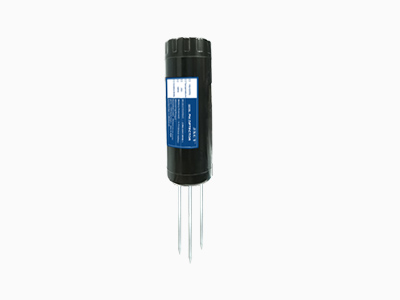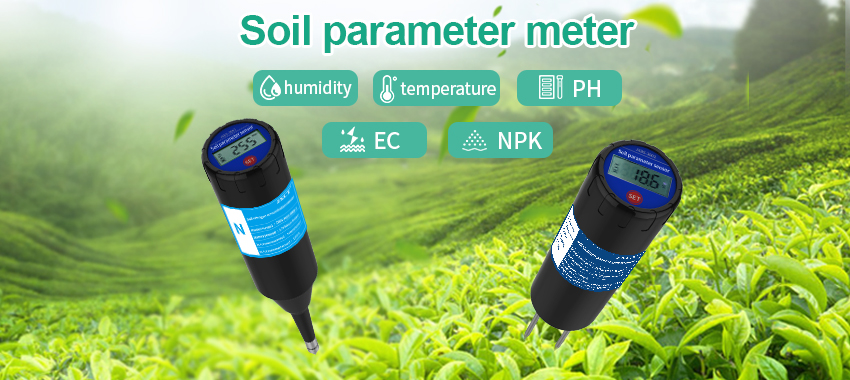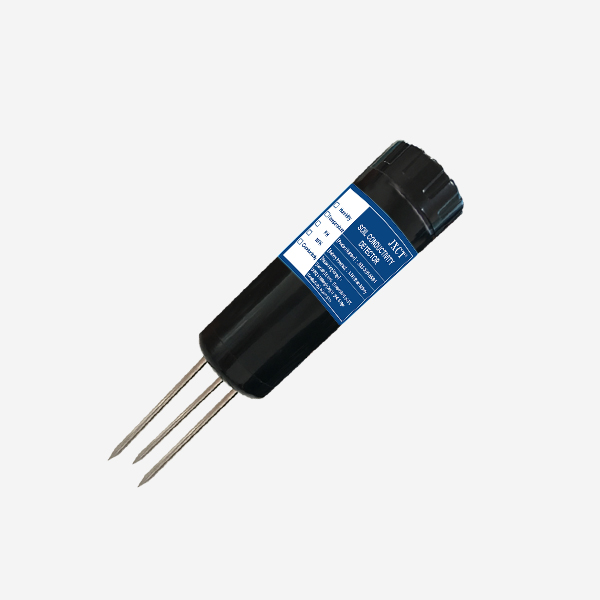Soil is a valuable natural resource that plays a crucial role in supporting agricultural productivity, ecosystem health, and water quality. However, the degradation of soil quality due to improper land management practices poses significant challenges to sustainable development. To address these issues, the use of soil sensors for environmental monitoring has gained prominence. Soil sensors are advanced technological devices that provide real-time data on various soil parameters. This article explores the importance of soil sensors in improving land management practices, enhancing agricultural productivity, and promoting sustainable land use.

Understanding Soil Sensors:
Soil sensors are electronic devices designed to measure and monitor different soil properties and conditions. They employ various technologies, such as electrical conductivity, moisture sensors, temperature probes, and nutrient analyzers, to collect data on soil characteristics. These sensors are typically inserted into the ground at different depths to capture information about soil moisture levels, temperature variations, nutrient availability, pH levels, and salinity. The data collected by soil sensors helps farmers, land managers, and researchers make informed decisions regarding irrigation, fertilization, and other land management practices.
Soil Moisture Monitoring
One of the critical parameters monitored by soil sensors is soil moisture content. Soil moisture affects plant growth, nutrient availability, and water infiltration rates. Traditional methods of soil moisture measurement, such as gravimetric sampling or tensiometers, are time-consuming and labor-intensive. Soil sensors provide real-time data on soil moisture levels, enabling farmers to optimize irrigation practices. By avoiding over-irrigation or under-irrigation, farmers can conserve water resources, reduce energy consumption, and enhance crop productivity. Soil moisture sensors also help prevent waterlogging and improve drainage, thus minimizing the risk of soil erosion and nutrient leaching.
Nutrient Management:
Proper nutrient management is essential for maintaining soil fertility and maximizing crop yields. Soil sensors equipped with nutrient analyzers can measure the concentration of essential nutrients, such as nitrogen, phosphorus, and potassium, in the soil. This information allows farmers to apply fertilizers more precisely, avoiding both excessive and inadequate nutrient application. By optimizing nutrient management, farmers can reduce fertilizer costs, minimize nutrient runoff into water bodies, and mitigate the environmental impact of agriculture. Soil sensors also enable the monitoring of soil pH levels, which is crucial for determining soil acidity or alkalinity and adjusting lime applications accordingly.
Soil Temperature Monitoring:
Soil temperature plays a vital role in seed germination, root growth, microbial activity, and nutrient availability. Soil sensors equipped with temperature probes provide accurate and continuous measurements of soil temperature at different depths. This information helps farmers determine the optimal planting time for crops, manage pest and disease risks, and optimize irrigation scheduling. Soil temperature sensors are particularly valuable in regions with distinct seasonal variations, where understanding soil temperature dynamics is crucial for successful crop production. By monitoring soil temperature, farmers can make informed decisions to maximize crop yields and reduce the risk of crop failure.

Erosion Control and Soil Health:
Soil erosion is a significant concern in many agricultural and land management practices. Excessive erosion leads to the loss of topsoil, reduced water-holding capacity, and diminished soil fertility. Soil sensors aid in erosion control by providing data on soil moisture levels, compaction, and infiltration rates. This information helps land managers implement erosion control measures, such as contour plowing, terracing, or cover cropping, at the right time and in the right areas. Soil sensors also contribute to assessing soil health indicators, such as organic matter content and microbial activity. By monitoring soil health, land managers can implement practices that promote soil conservation, enhance nutrient cycling, and improve long-term land productivity.
Precision Agriculture:
Soil sensors are a key component of precision agriculture, a farming approach that utilizes advanced technologies to optimize resource use and increase productivity. By integrating soil sensors with other technologies like GPS (Global Positioning System) and remote sensing, farmers can create detailed soil maps and apply site-specific management practices. This allows for the precise application of water, fertilizers, and pesticides based on the specific needs of different areas within a field. Precision agriculture reduces input costs, minimizes environmental impacts, and improves overall farm efficiency. Soil sens
